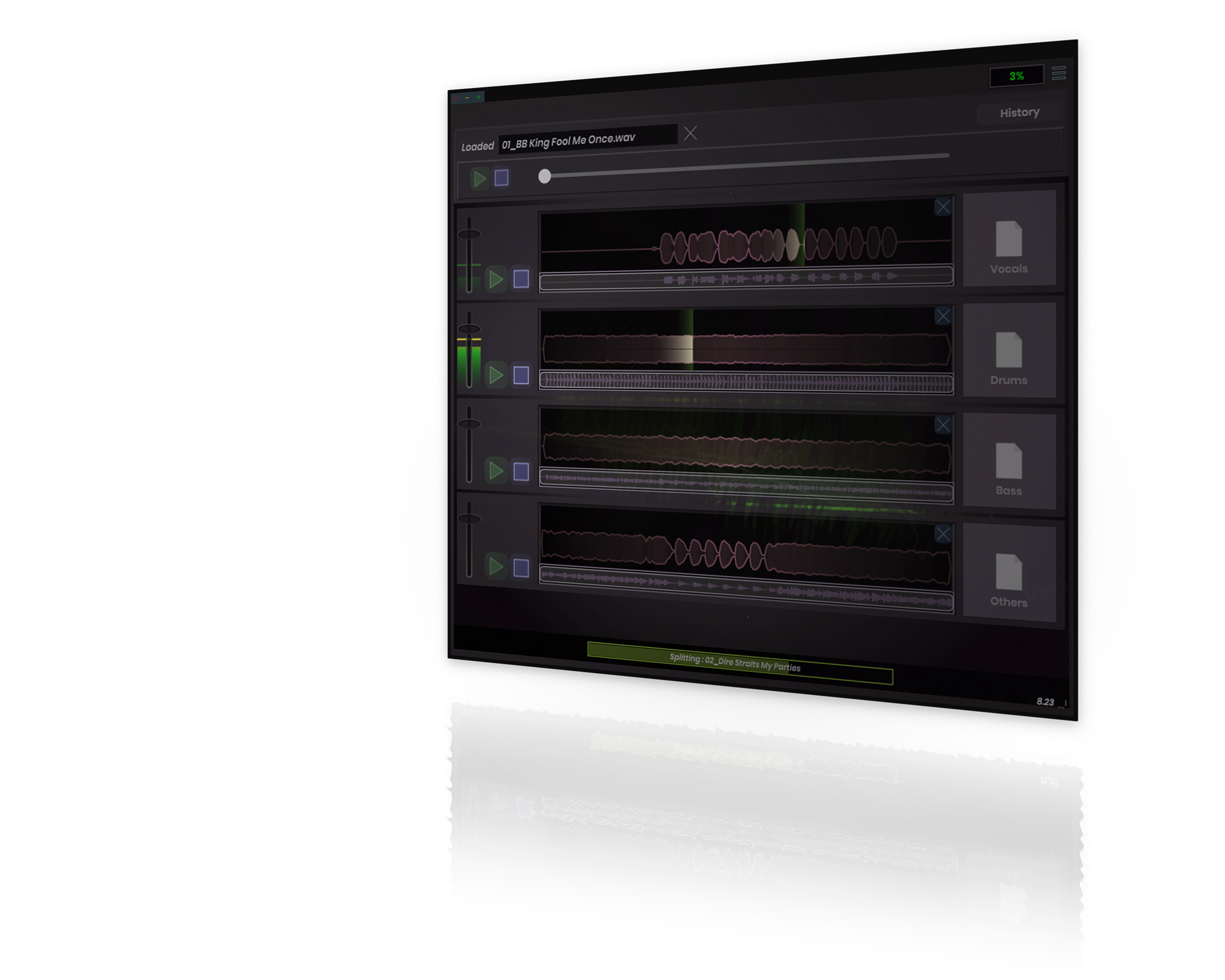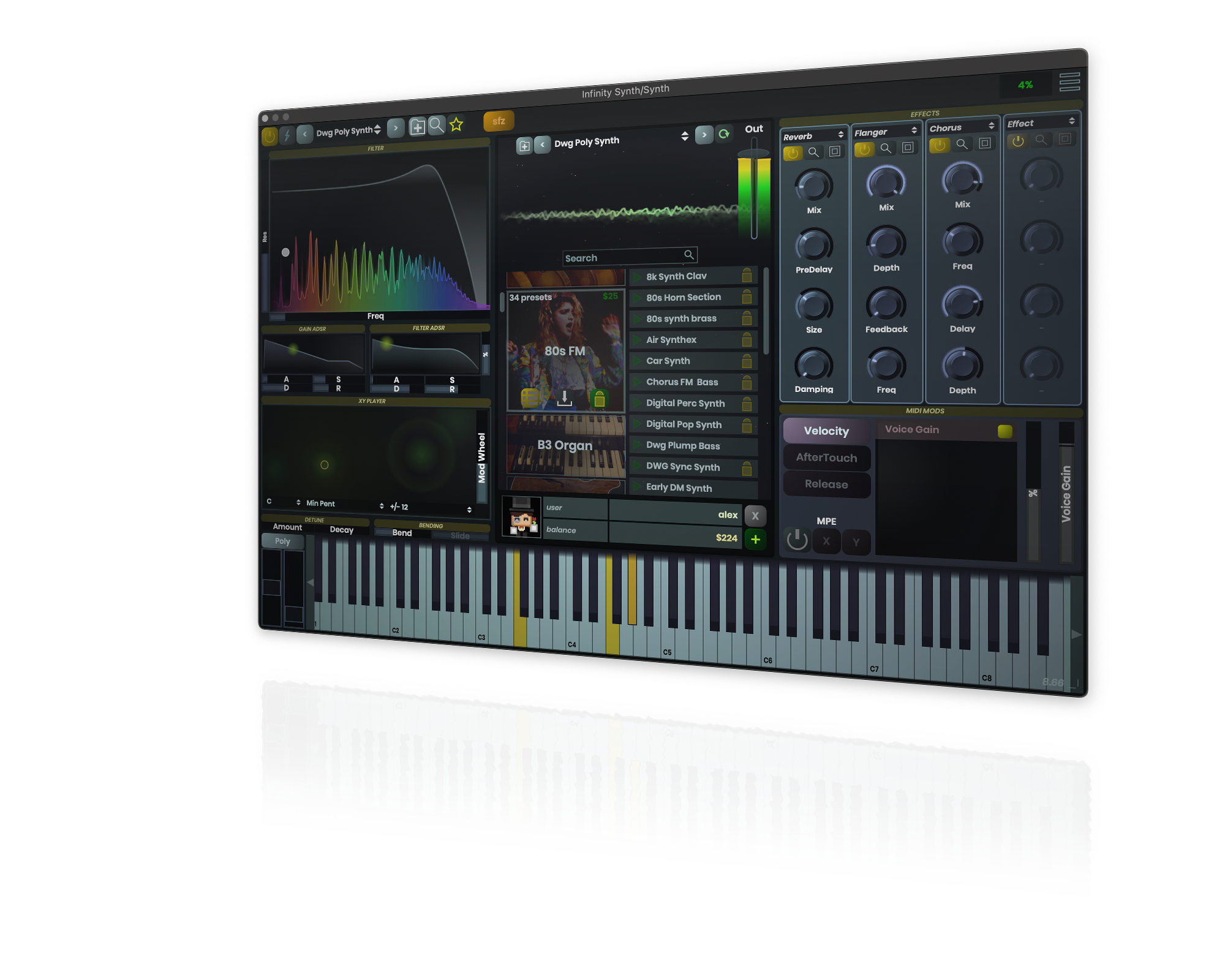
What are “stems”?
Stems are essentially the primary constituents of a song; they’re audio tracks which, when combined, create the final and complete mix. You can think of them as sub-mixes, independently controllable within the context of the entire product. For example, the aggregate of all the drums in a song can be put into one track to create a drum stem.
Now, depending on how a song was created, the original producer(s) could simply go into their music project and render out a clean drum track — that is, the drums without the accompanying piano, bass, synths, etc. However, end users (the listeners) typically do not have this luxury, as the complete mix would be a single file which cannot simply be undone. It would be like trying to un-bake a cake.
Simple Stems seeks to bridge this gap by using AI technology to estimate where the stems are in a song. Stagecraft Software did not make this technology; we adopted it from the open-source project demucs, creating our own application to offer a simple and intuitive interface, local (offline) stem splitting, file dragging/dropping, and more at an affordable one-time price — that means no subscriptions! We cover more about what you can separate and the quality of said separation below.
What exactly can you separate?
Simple Stems splits audio into four stems:
– vocals,
– drums,
– bass,
– and other (like pianos, synths, or sound effects).
How long does separation take?
Simple Stems processes audio locally on your machine, so the time it takes to separate largely depends on the performance of your machine and the amount of audio being split. As an example, a MacBook Pro M2 Pro (12-core) with light background tasks was able to split a 6-minute track in a little under 3 minutes.
With the newest version of Simple Stems, you can see the progress of the stem separation.
How well does Simple Stems decompose audio?
The largest factor determining the quality of the separation is the source material. Clean, well-mixed studio recordings will generally separate nicely; however, noisy or crowded audio may produce stems with more artifacts. Whether they will sound good enough to you depends on your personal use case, though we’ve found it works great for common situations like remixing or creating karaoke versions of songs — especially if you have previous experience working with these types of stems.
We a full version of Simple Stems free for 30-days, which we encourage you to try before purchasing.
What are the minimum OS requirements?
At least macOS 11 (Big Sur) or Windows 10 is needed.
What audio formats are accepted?
Most popular file formats will work, like MP3, AIFF, FLAC, and OGG. You can also put in most MP4 and MKV files, but note that you will only get the audio back.




